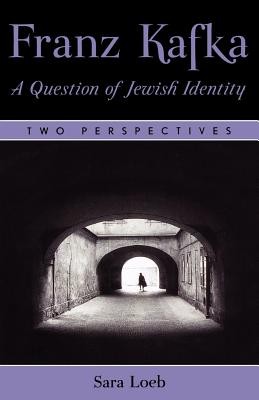
- We will send in 10–14 business days.
- Author: Sara Loeb
- Publisher: University Press of America
- ISBN-10: 0761821414
- ISBN-13: 9780761821410
- Format: 15.2 x 21.6 x 2.1 cm, softcover
- Language: English
- SAVE -10% with code: EXTRA
Reviews
Description
Franz Kafka, the Jewish writer from Prague, who wrote in German, grew up after the Emancipation at a time when most Jews in Central and Western Europe suffered from an identity crisis. The most prominent characteristic of the experience of this generation of young people was "hybridism," a kind of partial assimilation that brought them to a dead-end. In Franz Kafka: A Question of Jewish Identity, Sara Loeb examines this complex dialectic, focusing on the question of if, how, and to what extent Kafka's works reflect the identity crisis he suffered. She offers a new perspective of his life through an encounter between the points of view of two well-known critics: Max Brod, Kafka's close friend, and Marthe Rober, a literary critic who translated Kafka's works into French. Each seeks to examine, in a different way, the source of Kafka's link to his Jewishness. Loeb opens a window to Kafka's inner world, and examines the man and his work from a new perspective.
EXTRA 10 % discount with code: EXTRA
The promotion ends in 18d.05:51:27
The discount code is valid when purchasing from 10 €. Discounts do not stack.
- Author: Sara Loeb
- Publisher: University Press of America
- ISBN-10: 0761821414
- ISBN-13: 9780761821410
- Format: 15.2 x 21.6 x 2.1 cm, softcover
- Language: English English
Franz Kafka, the Jewish writer from Prague, who wrote in German, grew up after the Emancipation at a time when most Jews in Central and Western Europe suffered from an identity crisis. The most prominent characteristic of the experience of this generation of young people was "hybridism," a kind of partial assimilation that brought them to a dead-end. In Franz Kafka: A Question of Jewish Identity, Sara Loeb examines this complex dialectic, focusing on the question of if, how, and to what extent Kafka's works reflect the identity crisis he suffered. She offers a new perspective of his life through an encounter between the points of view of two well-known critics: Max Brod, Kafka's close friend, and Marthe Rober, a literary critic who translated Kafka's works into French. Each seeks to examine, in a different way, the source of Kafka's link to his Jewishness. Loeb opens a window to Kafka's inner world, and examines the man and his work from a new perspective.


Reviews